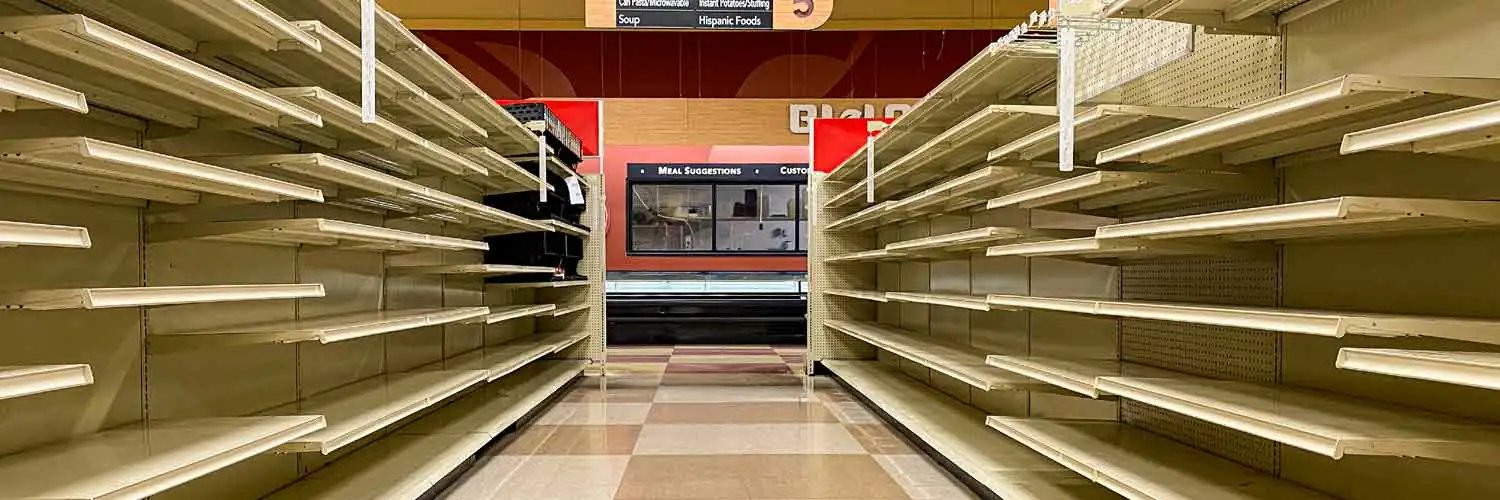Coronavirus was first identified in Wuhan, China, and announced to the world in December 2019. Now, little more than three months later, this previously unknown virus not only dominates our conversations, television and media news broadcasting, but threatens to disrupt our everyday lives.
As of March 14th, more than 140 countries are known to be affected. Global statistics suggest close to 200,000 confirmed cases, the World Health Organisation has declared coronavirus to be a pandemic – (a term used to describe a disease spreading in multiple countries at the same time) – and the economic climate is beginning to encounter difficulties. Stock markets have suffered turmoil amidst fear and uncertainty, shortages of raw materials, transportation problems and cities in quarantine add to increasing wide scale delivery issues.
How is this affecting UK supply chains?
Supply chains are only as effective as their weakest link, and with so many products and services in the UK relying on highly integrated, fast, efficient cross border supply chains, the rapid spread of coronavirus is set to pose ongoing risks. In particular, coronavirus will severely impact labour and the movement of goods.
Labour
Many major manufacturing plants across China have stalled production. Travel restrictions have led to a shortage of available manufacturing workers in a region which is already suffering as a result of the vast numbers contracting the disease. In Shanghai alone, more than 80 per cent of its manufacturing outlets currently do not have sufficient skilled workers and production lines are grinding to a halt.
Movement of goods
With China supplying optical, technical and medical apparatus, clothing, textiles, furniture, toys and components for many UK sectors of industry, it is clear that many UK organisations will have difficulty supplying demand and fulfilling their contractual obligations.
In addition to the knock-on effect of labour shortages and production line closures, governmental action designed to contain the spread of coronavirus will impact significantly on transport. Port restrictions regarding the unloading of goods, curtailing international flights and freight forwarding bans will undoubtedly escalate supply chain difficulties.
Long term implications
Although some automotive plants across China are beginning to expand their manufacturing outputs, a return to full scale production is unlikely until the number of those affected by coronavirus falls dramatically. China’s manufacturing output accounts for more than one quarter of global manufacturing. With global plastic, chemical, steel and technology companies facing reduced production, analysts predict that stagnation until September 2020 is likely.
The economic downturn across the UK is beginning to take its toll. JCB has suspended overtime at its UK factories as a shortage of imported components from China has halted its production line and led to the reduction in working hours of approximately 4000 UK workers. This will inevitably rebound on other UK organisations as economic disruptions take hold, more and more companies chase fewer and fewer available sources and shortages and price spikes occur. Additionally, as the coronavirus spreads to the USA and Europe, other major manufacturing countries will face similar trading problems to those encountered in China, adding extra burdens to both supply chains and global economies.
Stockpiling of goods poses yet more issues for struggling supply chains. Larger businesses may have more robust procurement strategies and diverse supply bases in place, but smaller, more vulnerable businesses could suffer longer term effects as it’s far more difficult for them to absorb high levels of demand. Stockpiling creates a vicious circle which these suppliers may not be able to recover from. Consumers faced with uncertainty over empty shelves tend to try and stockpile even more, thus compounding the problem further.
Lessons to learn
Major businesses which have been heavily dependent on China, or perhaps any specific trading region, should consider diversifying their supply bases. Of the top nine container ports in the world, seven of them are in China, one in Singapore and one in South Korea, all countries which have been severely affected with coronavirus. This outbreak is ongoing, and as such the true extent of financial loss will not be fully measurable for some time.
Coronavirus has educated the business world in a need to reduce reliance on overseas outsourcing, increasingly look to more local suppliers, understand vulnerable supply chain links and have strategic contingency plans in place.
As can be seen, disruption to production in one corner of the world can easily starve complex supply chains from their vital resources. Businesses must take stock of the way they manage risk, adapting and learning from these opportunities. Unfortunately, with a pandemic such as coronavirus threatening lockdowns and transforming vibrant business hubs into ghost towns, specific contingency plans are difficult to anticipate or plan for. The idiom of not putting all your eggs in one basket has never been more apt.
